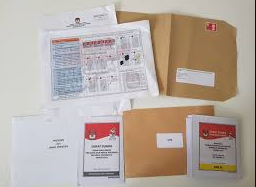Amendments include special voting arrangements for nursing home residents and updates to election advertising laws.
SINGAPORE: Eligible Singaporeans living overseas will soon be able to vote by post in future elections, following amendments to the country’s election laws passed in Parliament on Monday (Mar 6). Additional changes include special voting arrangements for nursing home residents and updates to regulations governing online election advertising.
These amendments to the Presidential Elections Act and Parliamentary Elections Act aim to enhance voter accessibility and strengthen confidence in Singapore’s electoral processes, according to Education Minister Chan Chun Sing, who introduced the Bills for a second reading. He stated that these changes would help build greater trust and improve the administration of elections in the country.
The amendments were passed with the exception of the nine Members of Parliament (MPs) from the Workers’ Party (WP), who abstained from the vote regarding the Presidential Elections Act. WP Chairman Sylvia Lim reiterated her party’s opposition to the office of the elected president.
Key Changes:
Postal Voting for Overseas Singaporeans:
A new provision allows overseas Singaporeans to vote by post, addressing travel disruptions that previously limited their ability to participate. Minister Chan assured that the Elections Department (ELD) would implement processes backed by technology to maintain the integrity and secrecy of postal voting.
Overseas voters will be able to register through ELD’s online services using Singpass, and will need to upload a wet-ink signature for authentication.
After Nomination Day, postal voters can download and print their ballots, mark their vote, and return the ballot using a prepaid envelope, ensuring it arrives at ELD within 10 days after Polling Day.
A pre-count process will verify the authenticity of the return envelopes, and postal ballots will be mixed with other overseas ballots for secrecy before counting.
This development is seen as a positive step by the WP, as it empowers more overseas Singaporeans to participate in national elections, something the previous system limited to just 10 overseas polling stations.
Special Voting Arrangements for Nursing Home Residents:
The new amendments also cater to nursing home residents by setting up special polling stations within these facilities and deploying mobile polling teams to assist bedbound voters.
A pilot project will involve 25-30 nursing homes, benefiting over 2,000 voters, representing two-thirds of those currently residing in nursing homes.
The changes also address concerns regarding voters with mental conditions like dementia, allowing them to cast blank votes if they are unable to mark their ballots.
Updates to Election Advertising Laws:
The scope of online election advertising (OEA) has been expanded to include the amplification of content, such as boosting, reposting, or resharing, which will now be subject to the same regulations as original OEA content.
Amplification of election content after the cooling-off period is prohibited, with exceptions for private communications.
New rules mandate that the particulars of those who approve OEA content must be displayed, ensuring transparency in election advertisements.
The Returning Officer now has the authority to issue corrective directions to social media companies and other content publishers to remove or restrict OEA during the election period.
Other Amendments to Improve Election Processes:
Additional changes include allowing the Returning Officer to set up polling stations in adjacent electoral divisions to accommodate voters living near boundary lines.
An age-based restriction has been introduced, prohibiting those under 16 from participating in election activities.
The ban on foreigners participating in election activities will now extend to foreign entities, ensuring that only Singaporeans influence the country’s political process.
These amendments aim to modernize and streamline Singapore’s election system, making it more inclusive and transparent while addressing the needs of all voters.








